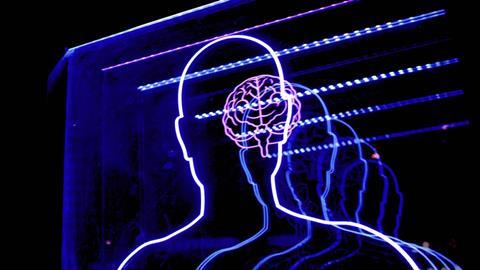Erik Strandness explores how we can reconcile reason with joyfully dancing in our underwear
Our young people appear to have uploaded their intellect into the Cloud. Believing that knowledge is a Google click away, they have put their brains in electronic mothballs. The problem is that once you pack up your intellect and place it in an internet storage facility, you are left with nothing but an empty house haunted by emotional ghosts.
If thinking is somebody else’s business, then the only way people will notice us is through our emotional outbursts. If discernment is outsourced then the only way we know we exist is to radically strip away our intellect and conclude, “I feel, therefore I am,” and then pity poor Descartes for getting too much into his own head and neglecting his heart.
The limits of emotion
We see this culturally manifest as a change in the definition of truth from intellectually discerned objectivity to emotively felt subjectivity. If you don’t have to seriously engage your mind, then you are free to cavort with your emotions. Outsourcing our intellect to Wikipedia means that the only domestic product that we produce at home is an emotional house of cards.
While emotions may inspire us, they alone are insufficient to evaluate things of ultimate importance. We need to intellectually read the room before we emotionally pop off, and while feelings often feel like the most intimate reflection of who we are, we also know they can lead us wildly astray.
Read more:
McGilchrist’s brain science points towards God.
Is there a master behind our mind?
Atheists like Dennett are wrong about consciousness
Feelings, however, can also positively inspire us by providing the surge of electricity necessary to turn on our mental light bulb, but once the room is illuminated, it is our intellect that allows us to navigate the real-world furniture. Intuition and feelings may spur the imagination, but reason and logic take them for a trail ride.
Jesus called us to “love the Lord your God with all your heart and with all your soul and with all your mind and with all your strength”, therefore our goal should be a unity of knowing where reason and emotion are married, such that the two become one. Unfortunately, somebody let in a postmodern wedding crasher intent on rending asunder that which God hath joined together, and this intruder, in his relentless desire to deconstruct, sent our intellect packing and filed for separation on the grounds of irreconcilable differences. Sadly, ever since the divorce papers were signed we find life very difficult as the single parent of an emotionally unstable child.
Get access to exclusive bonus content & updates: register & sign up to the Premier Unbelievable? newsletter!
A way forward
What can we do to reconcile the two so that they can once again live together in harmony? We need to show our young people that God not only calls us to reason together but also to joyfully dance in our underwear. A Jesus who isn’t just concerned about jots and tittles but also hopes that our joy may be complete.
Postmodernism has done us a favour by once again raising the importance of emotion in our life. It reminds us that the arid land of the intellect must periodically be refreshed by an emotional rain if our faith is to be habitable. It’s a tricky business, however, navigating the dry desert of the intellect and the flooding potential of an emotional downpour but someone’s faith may just depend on us getting the balance right.
Erik Strandness is a physician and Christian apologist who has practiced neonatal medicine for more than 20 years.























